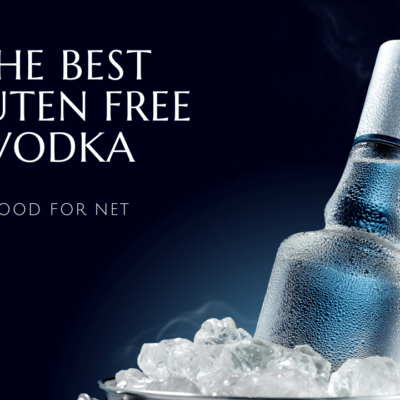
While most of us love hot showers, cold showers are becoming increasingly popular. They might not provide the same comfort that you get with a lovely warm shower, but there are other reasons for trying a cold shower. So, why are cold showers good for you and when should you be having them?
Well… as you can probably guess, there are plenty of cold shower benefits. Some of these are promoted by the extreme athlete Wim Hoff, who suggests that extreme cold is powerful. While most of us aren’t willing to push to the lengths that Wim Hoff does, cold showers are an easy enough option.
The topic is also a reminder that it isn’t just food that influences our health. Our lifestyles are relevant as well, which can include things like whether we nap or not, if we sleep in a bed or on the floor, how much we exercise, and perhaps even the amount of crying we do.
Are Cold Showers Good For You?
- The Benefits Of Cold Showers
- The Problems With Cold Showers
- What About The Discomfort?
- Hot Showers Versus Cold Showers
- Tricks For Having A Cold Shower
- Other Options
- Final Thoughts
The Benefits Of Cold Showers

They Wake You Up
A warm shower gives you a nice and easy start to the day, often waking you up gently. Cold showers, on the other hand, give your body a bit of a shock. That shock increases your heart rate and alertness a little. The increase isn’t dramatic, but it’s enough to get you energized for the day.
And honestly, sometimes you really do need to wake up suddenly. The last thing you want is to still be groggy at 9 or 10 am when you have a lot of important work in front of you.
The Water Increases Your Circulation
When cold water hits your skin, it decreases the circulation at that level, which leads to faster circulation deeper in your body. This happens to make sure that your body temperature stays at ideal levels.
The cold water also helps to boost your heart rate, which directly influences circulation as well. This has many benefits, such as decreasing blood pressure levels.
May Decrease Inflammation
The circulation effect of cold showers may also mean that the temperature helps to decrease inflammation. This is an important effect, as chronic inflammation is thought to contribute to a variety of diseases and other health issues.
As such, having cold showers regularly could help to reduce the risk of some health problems, including heart disease or hypertension.
Can Be Important After Workouts
We often think of hot showers as the best choice after a workout, as the warm water helps to sooth your muscles and make you feel more relaxed. Yet, a cold shower may be even more helpful.
The cold water actually relaxes your muscles too and helps them repair. This is particularly important after intense exercise.
And honestly, the effect isn’t so surprising, is it? Hot packs and cold packs are both used to treat muscle soreness, depending on the situation. Why can’t hot showers and cold showers be used in the same way?
Could Improve The Appearance Of Your Skin And Hair

There hasn’t been much research in this field, but some people with a cold shower habit say that their skin and hair tend to look much better.
The effect on your skin isn’t surprising, as we know that cold water influences your circulation. Look closely at your skin after a cold shower and see what you think.
Similarly, cold water might help to close your hair cuticles and strengthen them, making your hair look much better.
That’s not all.
Having hot showers regularly tends to try out your skin. Having them every day could easily harm your skin’s appearance, especially if you don’t moisturize afterward.
Cold showers get around that issue entirely. So, over time, they help to keep your skin healthy.
May Help With Weight Loss
There’s even the chance that cold showers help you to lose weight. The effect is linked to brown fat. This type of fat doesn’t act as an energy store in the way that white fat does. Instead, it burns calories to help our bodies stay at the right temperature.
Some research suggests that cold temperatures can increase activity in brown fat and that being regularly exposed to cold temperatures could even help to reduce obesity.
Don’t get too excited though. Research in this field is extremely limited. At this point, all we know is that cold showers might possibly help you to lose weight. And honestly, even if they do, the effect is likely to be very small.
This means that cold showers won’t ever make you rapidly drop pounds, but a daily cold shower could be one part of a broader weight loss lifestyle.
You Simply Feel Better
The popularity of cold showers isn’t just because of the benefits or because of all the promotion that Wim Hof does. Instead, much of the popularity comes from the fact that you simply feel better afterward.
Many people report having more energy, reduced stress, being more alert, seeming to have a better immune system, and even seeing more weight loss. Plus, don’t forget the straightforward benefits, like how a cold shower helps you cool down on a hot day and helps you feel better during a hot flash.
Cold showers have another interesting benefit too – they help to decrease long-term stress.
The showers do this in an interesting way, by causing small amounts of stress to your body. Doing so helps you to become more resilient, making the more dramatic stress in your life much easier to handle.
The Problems With Cold Showers

What about the downsides? There must be some issues with a cold shower, right?
Well… there are, but not many. The biggest problem is that if you’re cold, the cold water is just going to make matters worse (which is hardly surprising). Because you’re dropping your body temperature even further, warming up make take a long time.
If you’re cold already, having a hot shower makes much more sense.
Similarly, if you’re sick, a cold shower mightn’t be a good idea. The temperature could cause problems with your immune system and make your recovery even slower.
Finally, a cold shower isn’t as relaxing as a hot one (okay, let’s be honest, cold showers are pretty uncomfortable). While this isn’t an issue most of the time, you may choose to focus on a hot shower if you need to wind down at the end of the day.
What About The Discomfort?
Cold showers are uncomfortable, there’s no denying that. Even people who have cold showers regularly may dread that initial icy water plunge.
The benefits that we mentioned above all make a cold shower worth the discomfort.
Plus, that discomfort itself can be very important too, as it helps to promote willpower and strong character. After all, it takes effort to stay standing in freezing cold water. That same discipline can be applied to many other aspects of your life too, helping you to withstand difficult and even overwhelming situations.
Hot Showers Versus Cold Showers

With all the benefits of a cold shower, having a hot one instead might seem like a bad choice. Yet, as is often the case, each approach has its own appealing features.
While cold showers tend to make us alert and energized, hot showers are fantastic ways to relax. They’re an excellent choice at night, helping us to feel tired before it’s time to go to sleep.
The heat from your shower can also help to relax your muscles – an important effect for anyone who is feeling stressed.
Hot showers are normally the best choice if you’re sick too. One reason is that they’re easier on your immune system. That’s crucial when you’re recovering.
Plus, the steam in a hot shower can work wonders for respiratory issues. The hot steam can help to clear your nasal passages and to open your airways. Many people simply find that they feel better after a warm shower.
Warm showers, however, make your skin dry out faster, make you itchy, and even increase your blood pressure.
Finally, hot showers are comforting. This effect makes them ideal for mental health. Sometimes you simply need to feel safe and feel good. A cold shower won’t have that effect, but a hot one certainly will.
So, which do you choose?
The simple answer is to not stick to one type or another. Instead, listen to your body. Pay attention to what you need, along with when you’re having the shower.
If you’re sick and showering at night, for example, a hot shower will almost always be the best choice. But, for first thing in the morning when you want to wake up for work, a cold shower may be the way to go.
Tricks For Having A Cold Shower
Most of the benefits we’ve talked about are related to having a cold shower – not just one that’s a bit cooler than normal. But, most of us struggle with the idea of a freezing cold shower, so how do you do it?
One trick is to start off with warm water and then lower the temperature over time. Doing this allows your body to slowly adjust to the temperature change, so the process doesn’t seem as bad.
While this is a useful approach, you may not experience all the same benefits. After all, some of the effects of a cold shower come from that initial shock. You don’t get this if you are introducing yourself to the coldness gradually.
Another option is to start with a regular shower, but make sure the last 30 seconds are cold, as cold as you can handle. Over time, you’ll find that your tolerance for cold water
Another approach is to simply do it. By this we mean standing in front of the running water, saying to yourself I’m doing this and doing it that second. Don’t negotiate with yourself. Don’t leave room for doubt and don’t let your emotions get in the way.
This approach also acts as a fantastic exercise in willpower.
You probably won’t be able to stay in the cold water for very long the first few times, but that’s okay. The experience should get easier the more times you do it.
Other Options

Starting with a hot shower and cooling it down is one way around the decision about whether to have a hot shower or a cold one.
Another option is to alternate temperatures – an approach known as a contrast shower. When doing this, you get the water as cold as you can handle, then stand in it for a minute. After that, you make the water as hot as you can (without burning yourself) and stand in it for another minute.
Keep alternating for a few cycles to see the maximum benefits.
Of course, a contrast shower is hardly a relaxing approach. It isn’t the easiest way to get clean either, as you need to switch the temperature every minute. Still, it’s an option to test out.
Alternatively, you could try a lukewarm shower. This gives you some of the benefits of a cold shower and avoids some of the problems that come with a hot shower. Plus, lukewarm water is much easier to handle than water that’s freezing cold.
Final Thoughts
Hot showers may be familiar and comforting, but there’s a surprising amount of support for having cold showers instead. You could easily find that you feel more energized, your skin tone improves, you feel better, and you’re better at handling the stress of life.
While most of the potential benefits haven’t been proven, cold showers don’t come with much risk either. As long as you’re healthy, you should easily be able to try cold showers out for yourself. Plus, cold showers don’t need to be an all or nothing deal. You can always start with a warm shower and turn the temperature down slowly or try some other trick. Regardless of how you go about it, the more often you have cold showers, the easier they should become.
Frequently Asked Questions
Should You Have A Cold Shower After A Workout?
Cold showers aren’t just for first thing in the morning. Some research suggests that they’re also helpful after a workout, as they can reduce microtears in your muscles, leading to less muscle pain.
Having a cold shower could also help to decrease swelling and inflammation. Those are powerful features too.
Plus, exercise tends to heat your body up. A hot shower just makes that effect stronger, while a cold shower helps you to get back to your normal temperature sooner.
That said, hot showers have their uses, as they relax your muscles, open up your pores, and clean you more effectively. Because of this, it may be best to have a cold shower first and then a hot one. Doing so gives you the best of both worlds.
Are Cold Showers Bad For Your Heart?
Cold showers are often seen as being heart healthy, as they can improve circulation, reduce blood pressure, and decrease inflammation. Those factors could easily decrease the risk of heart disease and help to protect you.
However, this effect isn’t universal. The shock can also add stress to your heart, increasing the risk of an irregular heartbeat. Such risks are pretty low if you’re fit and healthy, but are much higher if you have heart disease or another serious illness.
The same is true if you have high blood pressure, as cold showers could easily increase your blood pressure to concerning levels.
Because of this, anyone with a health condition should consult their doctor before having regular cold showers. Your doctor should be able to tell you whether the showers are safe for you, plus any side effects to watch out for.
Can You Get Sick From Cold Showers?
Cold showers aren’t likely to make you sick on their own. They could even strengthen your immune system and reduce the risk of illness.
However, they’re not a good idea if you’re already sick. If you have a cold or the flu, a cold shower makes it even harder for your body to warm up, which can negatively impact your recovery time.
Is A Cold Bath As Good As A Cold Shower?
Ice baths are often used as alternative to a cold shower. They’re basically the next step up, as the water is much colder than you’ll ever get in a shower, creating a much stronger shock to your system.
Because of this, an ice bath should offer more benefits than a cold shower. But, the risks will be higher as well, so care is needed if you have any health issues.
A cold bath is a less intense version (depending on the temperature you choose). It should offer most of the same benefits as a cold shower. You may also want to wear warm clothing over any exposed parts of your body to stop the coldness from getting too much.
How Cold Is A Cold Shower?
A cold shower can be whatever temperature you want it to be. The most common definition is any shower that’s below 70 degrees Fahrenheit, although many people drop it down to between 50 and 60 degrees instead.
While lower temperatures should give you the most benefits, you may need to work up to these.
Also, be careful about the amount of time in extremely cold water (particularly if you’re showering at below 50 degrees Fahrenheit). Having a long shower at this temperature could lead to hypothermia and make you sick. The same is true for prolonged cold baths.

















 12 Best Foods For Fatigue, Plus Three Fatigue-Fighting Food Combinations For Breakfast
12 Best Foods For Fatigue, Plus Three Fatigue-Fighting Food Combinations For Breakfast
Leave a Reply